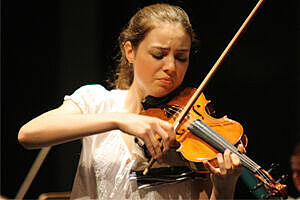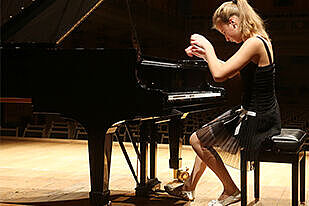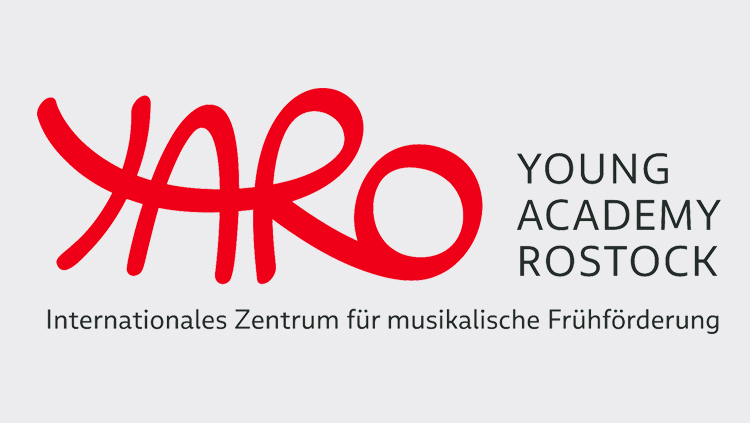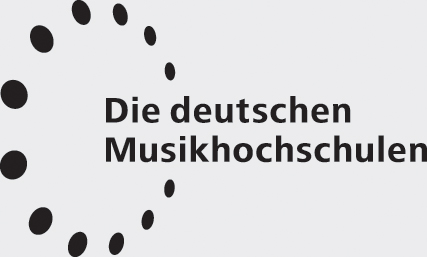Bachelor's Course Music Theory
Entrance Requirements
Applicants who wish to enrol at the University of Music and Theatre have to provide proof of entitlement (normally: “Abitur” – general/specialized higher education entrance qualification or foreign equivalent). As an exception for music studies and on request, this document might be complemented or replaced by a certificate verifying the passed entrance examination to the Hochschule für Musik und Theater Rostock. Applicants also need to have completed their compulsory education or will presumably have done so before they start their studies.
Course Profile
- Official Length of the programme: four years, 240 ECTS-credits
- Start of the course: winter semester as well as summer semester
- Application period: 1 October to 15 November for the summer semester. 1 March to 15 April for the winter semester.
- University Degree: Bachelor of Music
- Teachers
Programme Details
The Major Specialism modules (“Künstlerisches Kernmodul” and “Obligatorische Vertiefung Kernmodul”, semesters 1 – 8) provide the core of the Bachelor’s course. Here, the majors Music Theory, Ear Training and Ear Training Analysis are connected with Music Analysis. For these fields of study, introductory courses are offered that take students’ different levels of knowledge at the beginning of their studies into consideration. The Major Specialism modules also comprise instrumentation, and during the second half of the study, Musicology, Composition as well as Music Theory Jazz, Rock, Pop.
The instrumental or vocal major forms the centre of the modules Vocal and Instrumental Practice I+II (“Vokale und instrumentale Praxis I+II”, semesters 1 – 8). Students also develop competence in Score and Basso Continuo Playing, Piano Improvisation, and Choir Singing – disciplines that are closely linked to the majors.
Theory and History I+II (“Theorie und Geschichte I+II”, semesters 1 – 8) are basic modules during which students learn to approach music as a whole from the perspective of a music theoretician. The module Music Education (“Musikpädagogik”, semesters 1 – 2) comprises lectures providing basic pedagogical knowledge and the Teaching module (“Obligatorisches Vertiefungsmodul Didaktik”, semesters 5 – 8) builds on it. During the latter, practical school work with learners becomes part of the study. Students might further develop their pedagogical skills by choosing an optional pedagogical module (such as Elementary Music Education “Elementare Musikpädagogik”, semesters 5 – 6).
Beside the pedagogical area, there are several other optional modules that can be chosen from a module catalogue in order to either aim towards the refinement of artistic skills (for instance Chamber Music) or a specialisation (for instance Leading of Ensembles). One optional module has to be completed.
The course provides a basis for the professional work as a music theory teacher at music schools and universities or as a freelancer. Those students who stand out through artistic excellence might either pursue their studies and apply for a Master’s course or start their career immediately.
After 8 semesters, career opportunities can usually be discussed with the principal instructor who will give appropriate advice. The Master’s course in Music Theory with the main focus on Contemporary Music provides an interesting option for those graduates who wish to enhance their studies.
Foreign students whose native language is not German must provide evidence that their knowledge of German is sufficient for their chosen course.
For the Bachelor’s degree (Music Theory), students are required to have reached level C1 as defined by the Common European Framework of Reference for Languages.
Applicants’ linguistic competence will be established during the aptitude test.
You will find further information in the Aptitude Test Regulations and Matriculation Regulations (only in German) of Rostock University of Music and Drama.
Please apply via our application website by uploading the required documents by 15th of April for the next winter semester and 15th of November for the next summer semester.
Study applicants for the bachelor's degree course in Music Theory must complete the following examination components:
Examination Part 1
a 40-minute oral and practical examination with the following contents:
Major Music Theory
Keyboard Skills
a) play a four-part cadence/chord progression at sight following functional symbols or roman numerals,
b) play a modulation with verbal explanation of the course of modulation,
c) play a figured bass,
d) spontaneous analysis of several excerpts from musical scores,
e) discussion about topics related to music theory.
Parts a) to c) with be carried out at the piano.
Major Ear Training and Aural Analysis
f) Identifying and singing intervals and chords,
g) Sight-singing (tonal and atonal),
h) Speaking/tapping rhythm on sight,
i) Identifying a chord progression/cadence,
j) Aural analysis
The ability to suitably depict musical theory contents in a verbal form with suitable terminology is also an important component for the evaluation of the oral-practical examination.
A second part of the examination will only follow if the first part has been passed successfully.
Examination Part 2:
Major Music Theory
three-hour written examination with the following contents:
k) Two-part counterpoint in Renaissance or Baroque style,
l) Four-part chorale in Baroque style,
m) Analysis of an excerpt of a musical score from a tonal composition,
n) Analysis of a contemporary musical score (20th/21st century)
Major Ear Training
90-minute written examination with the following contents:
o) one-part dictations (tonal and atonal incl. difficult rhythmic examples)
p) three-part polyphonic dictation
q) four-part homophonic dictation
Instrumental/Vocal Major
In a 10-minute practical examination for the chosen instrumental or vocal major, applicants must prove elementary knowledge by performing two pieces from various epochs.
The aptitude test takes place will take place in June for the winter semester and in January for the summer semester. The exact dates will be published under apply for studies. You will also have to take tests in your respective compulsory subject Piano. Additionally, foreign students have to pass a German proficiency test.
Application
Click here for the ONLINE APPLICATION and the dates of the APTITUDE TEST.
A fee of 50 Euro is charged for processing your application for admission. Please transfer this amount when you submit your application.
We will gladly advise you personally!
Mrs Dörtje Peters
Study Office for Music
fon +49 381 5108 220
fax +49 381 5108 201
doertje.peters@hmt-rostock.de
Prof. Dr. Benjamin Lang, Head of Music Theory
benjamin.langhmt-rostockde
Please visit our University Information Day in April!
Back to DEGREE COURSES







